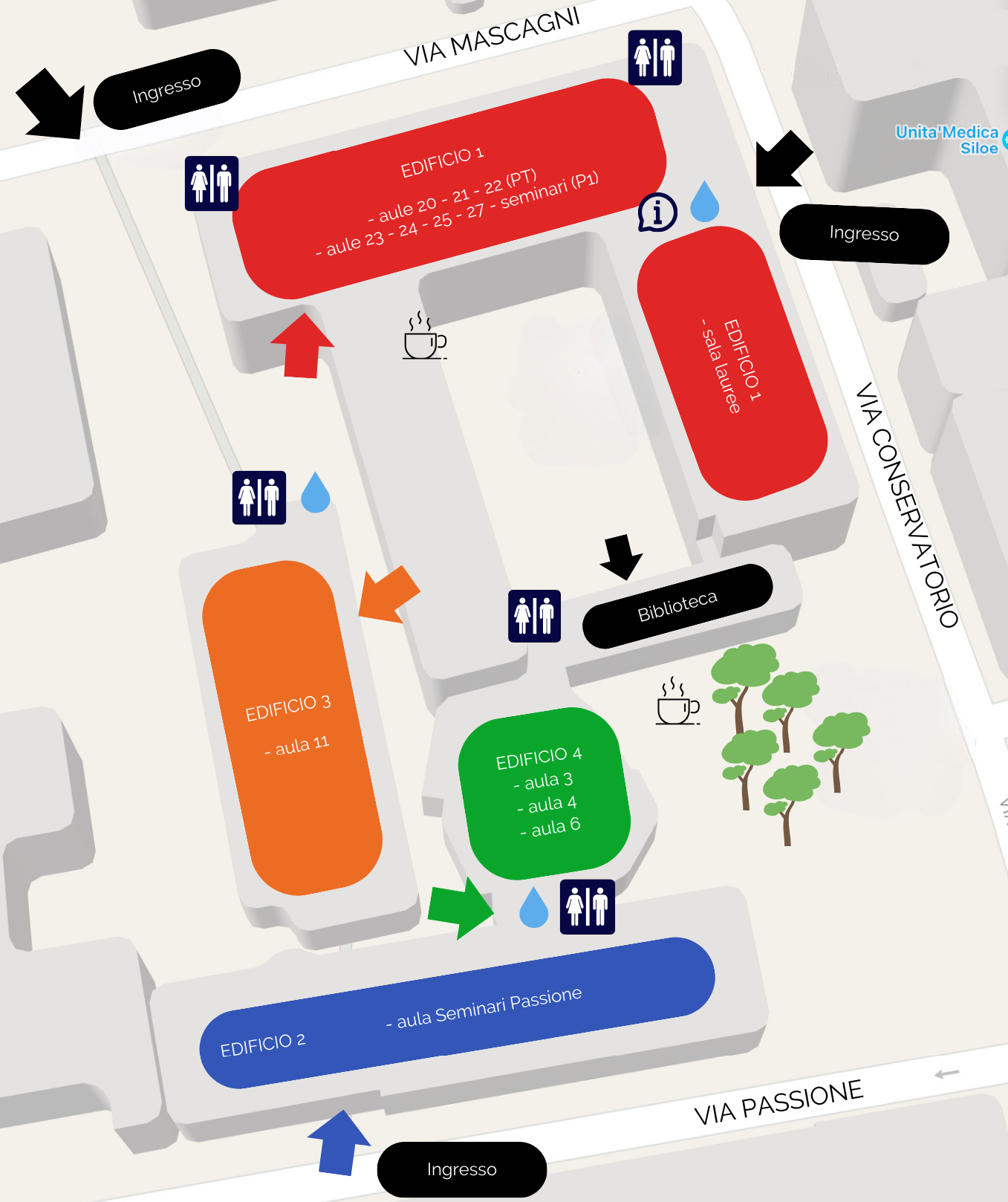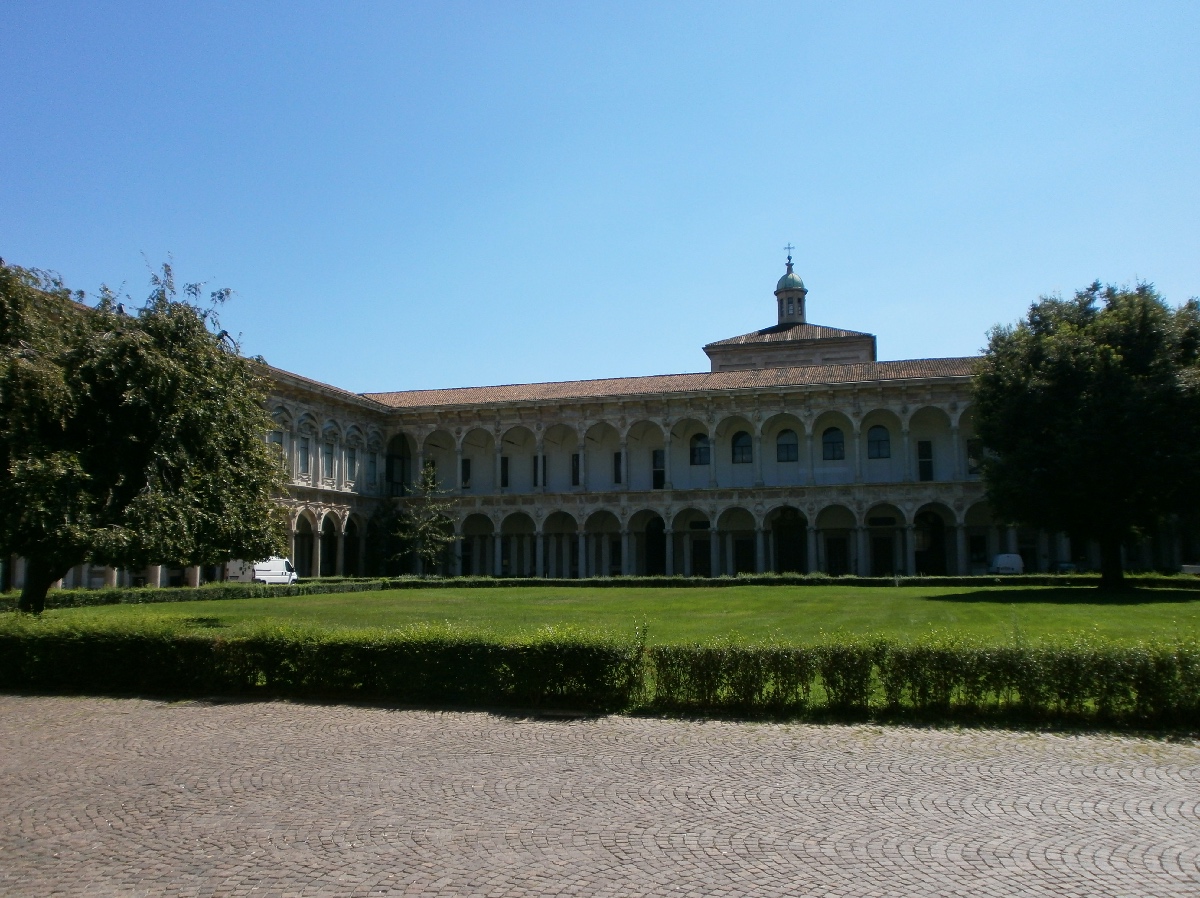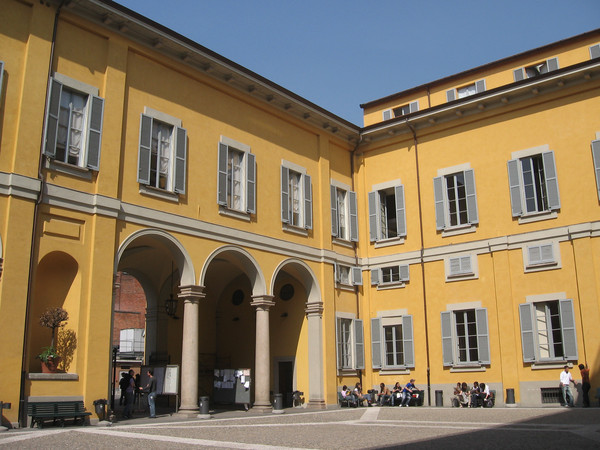XVI Conferenza ESPAnet 2023
Sistemi di welfare in transizione: tra equità e sostenibilità.
Sistemi di welfare in transizione: tra equità e sostenibilità
Università degli Studi di Milano, 13-15 settembre 2023
Trasformazioni strutturali slow moving, crisi multidimensionali e ricorrenti, profonde riorganizzazioni degli assetti politico-istituzionali, incisive riforme del mercato del lavoro e, da ultimo, l’avvio delle transizioni “verde” e “digitale” hanno investito, nell’ultimo mezzo secolo, i sistemi di protezione sociale costruiti durante i “Trenta Gloriosi” (1945-1975).
Dipartimento di Scienze Politiche, Economiche e Sociali (SPES), Università degli studi di Milano “La Statale”
SPES ha sede a Milano, in Via Conservatorio 7, 20122 Milano MI
Per raggiungere la sede: Metro 1 San Babila, Metro 3 Montenapoleone, Autobus 54 – 60 - 94, Tram 9 - 19
La mappa del Dipartimento, con le relative aule:

Fondazione Giangiacomo Feltrinelli ha sede in Viale Pasubio 5, 20154, Milano
Per raggiungere la sede: M2 Garibaldi – Moscova, M5 Garibaldi – Monumentale / Stazione ferroviaria Milano Porta Garibaldi / Tram 10 – 33
Per muoversi da SPES a Fondazione Giangiacomo Feltrinelli:
Autobus 94 – Fermate: partenza Via S. Damiano C.so Monforte, arrivo Moscova
Tram 9 - Fermate: partenza V.le Premuda, arrivo V.le Pasubio
Metropolitana: M1 Direzione Rho Fiera Milano da San Babila a Cadorna e M2 da Cadorna a Garibaldi FS
(English below)
Chi intende sottoporre un paper da discutere in una delle sessioni della conferenza dovrà inviare un abstract entro il 30 aprile 2023 compilando questo form.
Per qualsiasi informazione relativa all’organizzazione della conferenza potete scriverci a
For any information regarding the organization of the conference, please write us at
Welfare systems in transition: between equity and sustainability
University of Milan, September 13th-15th 2023
Over the last half century, slow moving structural transformations, recurrent multidimensional crises, labour market reforms and, last but not least, the “green” and “digital” transitions have been affecting the social protection systems built during the Trente Glorieuses (1945-1975).
In order to tackle such challenges, welfare systems have been deeply restructured along different dimensions: functional, by allocating resources to diverse social protection sectors; distributive, with the aim to protect the groups either no protected or mostly exposed to “new social risks”; politico-institutional, with some actors playing a more prominent role in the field of welfare both along the vertical axis – the European Union, as well as regions and municipalities – and the horizontal axis – third sector “not-for-profit” organizations, charities, trade unions, firms and employers’ organizations, but also banking and insurance companies and associations.
Welfare systems are thus currently in transition towards new, more complex and fragmented configurations, which should anyhow guarantee social cohesion and social inclusion in the next decades, in a context characterized by slower economic growth, global instability as well as growing social insecurity and vulnerability.
Against such backdrop, the conference aims at stimulating broad discussion and reflection on the effectiveness of these highly complex and fragmented “welfare systems in transition” in finding a difficult balance between the key objective of equity and the maintenance of economic-financial, but also social, political and environmental sustainability.



